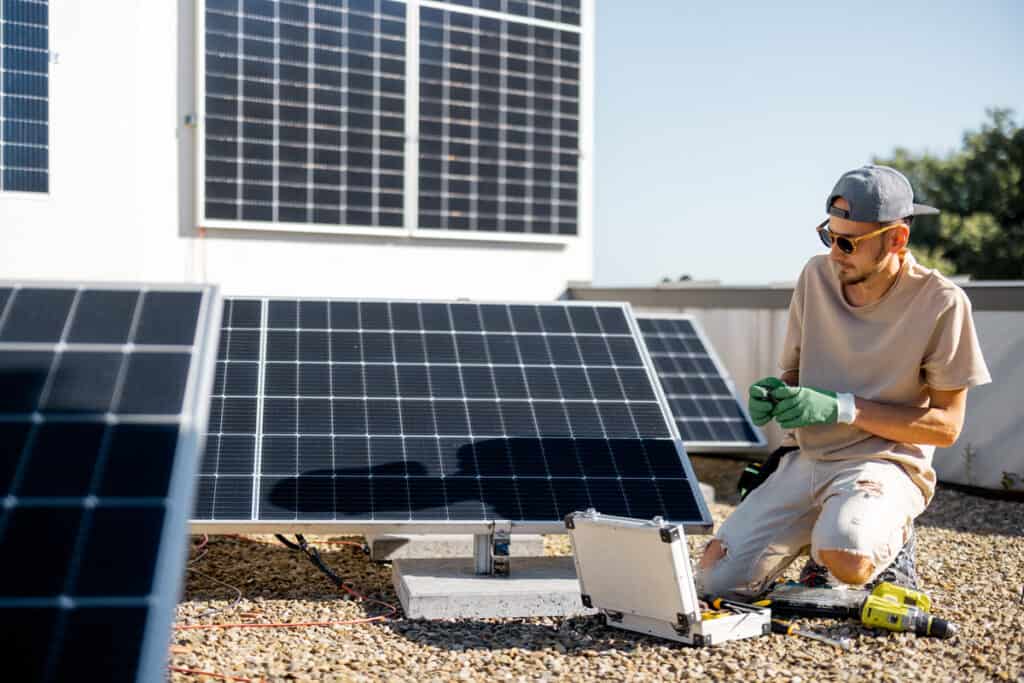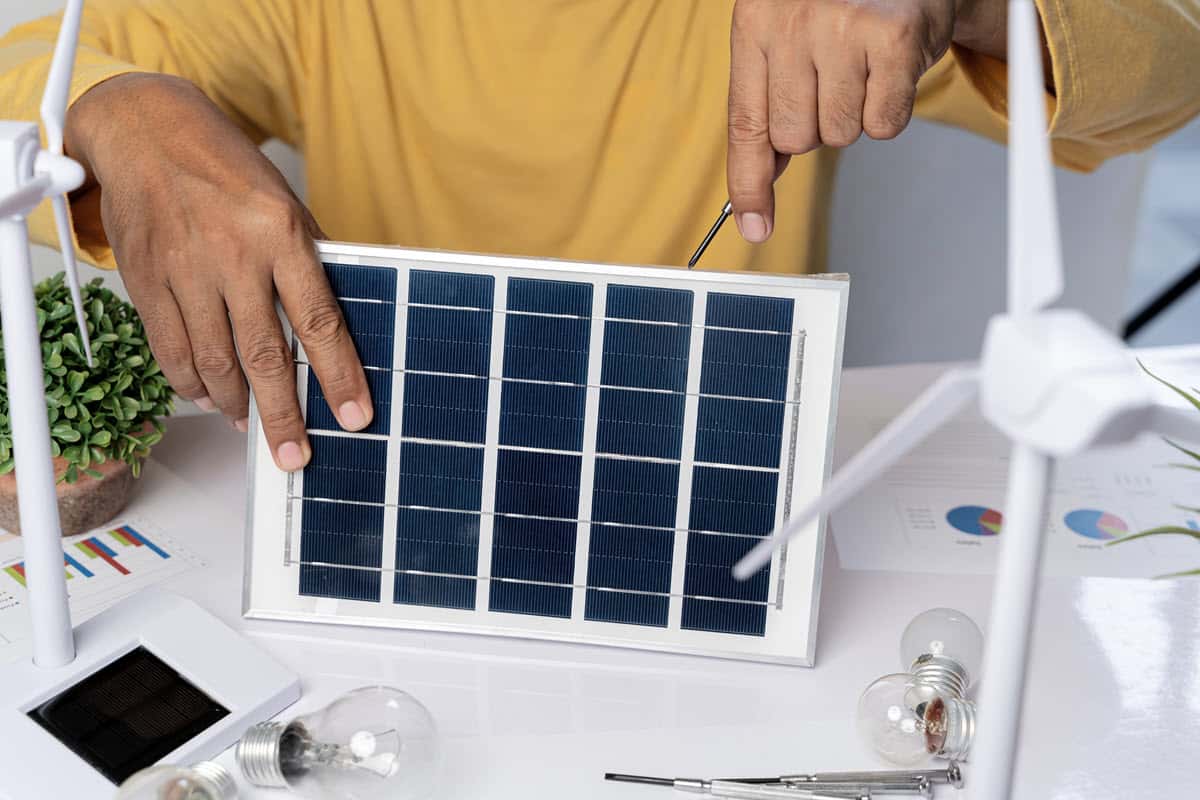Solar generators have gained significant popularity in recent years as a clean and portable power solution. With the growing interest in renewable energy and self-sufficiency, some individuals may consider building their own solar generators as a cost-saving or educational project. However, before embarking on a DIY solar generator journey, it’s essential to weigh the pros and cons to determine if it’s a practical undertaking for you.
Pros of DIY Solar Generators
- Cost savings: Building your own solar generator can potentially save you money compared to purchasing a pre-built system. DIY projects allow you to source components individually, giving you the opportunity to find better deals or discounts on specific parts.
- Customization and flexibility: One significant advantage of a DIY solar generator is the ability to tailor it to your specific power needs and preferences. You have full control over your system’s size, capacity, and features, ensuring that it meets your unique requirements.
- Educational experience: Building a solar generator can be a valuable learning experience, providing hands-on knowledge of solar power systems. It can deepen your understanding of renewable energy and electrical systems, making you more self-reliant and knowledgeable about the technology.
Cons of DIY Solar Generators
- Lack of expertise and safety concerns: Building a solar generator requires knowledge of electrical systems and safety protocols. Without proper training or experience, there is a risk of electrical hazards or system malfunctions, which can be dangerous and costly to fix.
- Time and effort: DIY projects can be time-consuming, requiring extensive research, sourcing components, and assembly. Troubleshooting and maintenance may also require additional time and effort compared to pre-built systems, which can be a significant drawback for those with limited availability.
- Limited warranty and support: Unlike professionally manufactured systems, DIY solar generators may not have the same level of warranty coverage. If issues arise, you may need to rely on your own troubleshooting skills or seek third-party assistance, which can be challenging and expensive.
Cost Comparison
Assessing the financial aspects is vital when considering a DIY solar generator project. Below is a cost comparison between building your own solar generator and purchasing a ready-made system.
| Cost Factor | DIY Solar Generator | Ready-Made Solar Generator |
|---|---|---|
| Initial Equipment Purchase | Costs can be significantly reduced by purchasing used panels, an inverter, and other components. | New equipment typically comes with a higher price tag, but it may include warranties and guarantees. |
| Installation | No labor costs if you install yourself; potential savings of up to 50%. | Professional installation adds to the overall cost but often comes with the benefit of long-term service and warranty. |
| Long-Term Savings | DIY setups can lower monthly energy bills; the impact varies based on the efficiency of the build. | Ready-made systems are designed for optimal efficiency, potentially offering greater savings over time. |
| Maintenance | Self-maintenance requires time and skill but cuts out professional service fees. | Maintenance services may be included or available at an additional cost. |
| Peace of Mind | Self-built systems may lack professional backup and warranties, posing potential risks. | Professional installers provide warranties and support, offering security and peace of mind. |
Considerations for DIY Solar Generators
- System size and complexity: Think about what you want to power and for how long. Smaller, off-grid applications like RVs, boats, or cabins may be more suitable for DIY solar generators. However, larger, home-scale systems may require professional expertise to ensure safety and optimal performance.
- Component quality and compatibility: Sourcing high-quality, compatible components is crucial for the reliability and longevity of your DIY solar generator. Inferior or mismatched components can lead to reduced efficiency or system failures, compromising the overall performance of your setup.
- Local regulations and permits: Building a solar generator may require compliance with local electrical codes and permits. It’s essential to familiarize yourself with the regulations in your area to ensure your project meets all necessary requirements and avoids any legal issues.
Power Output Comparison
While cost is a crucial factor, the power output of a solar generator ultimately determines its practicality and efficiency. Examining their power capabilities is essential to grasp the differences between homemade and off-the-shelf units.
| Feature | DIY Solar Generator | Ready-Made Solar Generator |
|---|---|---|
| Maximum Power Output | Varies based on components used | Typically defined by model |
| Power Consistency | Depends on DIY skill and component quality | Usually more consistent due to standardized production |
| Scalability | Highly flexible, can be upgraded | Limited by design and warranty constraints |
| Efficiency | Depends on the quality of DIY components and design | Optimized for efficiency through industry standards |
| Battery Storage Capacity | Customizable to needs | Fixed, must choose a model with the desired capacity |

Alternatives to DIY Solar Generators
- Pre-built solar generator kits: Solar generator kits provide all the necessary components in one package, simplifying the assembly process. While more expensive than individual components, kits can offer a balance between cost savings and convenience, making them a suitable option for those who want to avoid the complexities of a full DIY project.
- Professional installation: Hiring a professional solar installer ensures that your system is designed, installed, and maintained to the highest standards. While more costly upfront, professional installation offers peace of mind, warranty coverage, and long-term support, making it a preferred choice for many homeowners.
Conclusion
DIY solar generators can be a practical project for those with the necessary skills, knowledge, and time. However, it’s essential to weigh the pros and cons carefully, considering factors like safety, system complexity, and long-term reliability. For most individuals, pre-built solar generator kits or professional installation may be a more suitable option, offering a balance between cost savings and convenience.
Ultimately, the decision to pursue a DIY solar generator project depends on your specific needs, abilities, and willingness to take on the challenges and responsibilities involved. By carefully evaluating your situation and considering the alternatives, you can make an informed choice that aligns with your goals and ensures a reliable and efficient solar power solution.
If you’re interested in seeing how your DIY project stacks up against the market’s offerings, check out our detailed comparison of top solar generator brands and their features and performance.











Leave a Reply